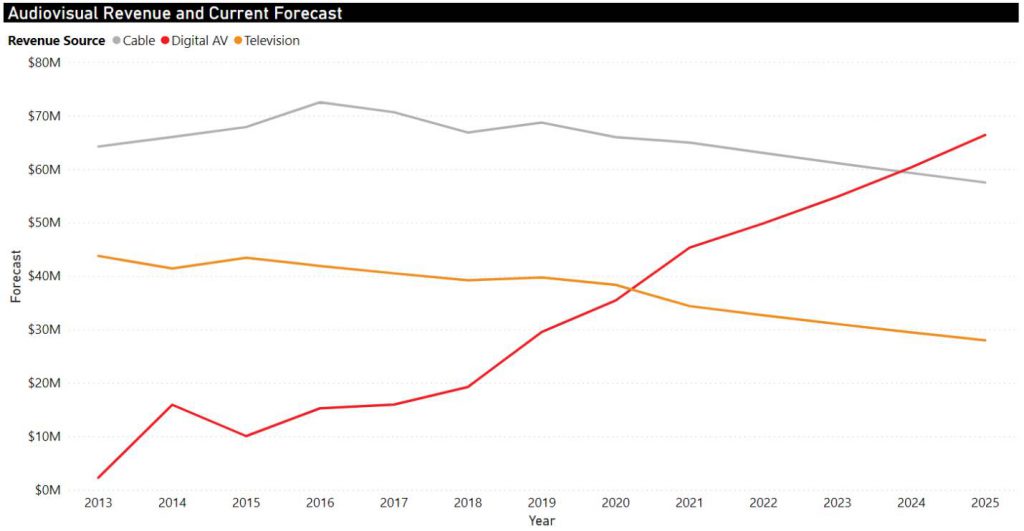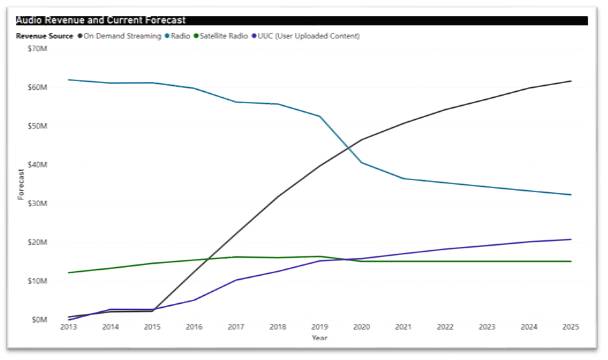Current broadcasting laws and regulations were designed for radio and television. While these rules have been effective, foreign digital platforms have zero obligations to support and promote Canadian creators, even to Canadian audiences. Reforming the Broadcasting Act is a necessary step to strengthening Canadian songwriters and composers’ place within Canada and supporting Canadian music in a digital world. This article continues to explain SOCAN’s advocacy efforts to reform the Broadcasting Act. The first article in this series can be read here.
From SOCAN’s data, we’re seeing public performance royalties collected from traditional broadcasters decreasing, while those from digital broadcasters are increasing.
To clarify, by “traditional,” we mean music played on radio, broadcast television, cable, satellite radio, cinemas, and pay audio. When we use the term “digital,” we define this as music played on online music services, online audio-visual services, and user-generated content services (we often refer to these services as “platforms”).
While traditional broadcasters currently remain the top source of performing rights royalties for our songwriter and composer members, they’re losing their market share to digital broadcasters.

For audio revenue from traditional broadcasters compared with digital broadcasters, we’re forecasting year-over-year increases to digital audio from 2021 to 2025.

For audio-visual revenue from traditional (cable and television) broadcasters compared with digital (online audio-visual) broadcasters, we’re predicting that based on current trends, digital broadcasters will be the top source of audiovisual revenue in 2025.
Again, these numbers alone don’t appear to create a cause for concern when we view them from a collection-of-royalties perspective, as the decreased revenues from traditional services will be tempered somewhat by the increased revenues from digital services.
However, from a distribution or royalties’ perspective, the switch to digital is disastrous for SOCAN’s songwriter and composer members. As noted in our previous article, domestic distributions to Canadian songwriters and composers from digital broadcasters are 69% lower than distributions from traditional broadcasters. Even though more money is being collected, it’s not staying in Canada.
With digital broadcasters on trend to become the top sources of revenues for SOCAN, we need to fix the outdated regulatory system to include foreign digital streaming services now, to ensure a future for Canadian creators.
Stay tuned to Words & Music for the third part of Why Broadcasting Act Reform Must Happen Now.